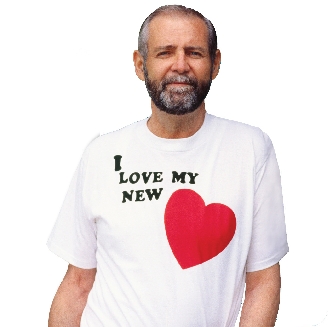single ventricle then sent oxygen-rich blood gushing throughout his body.
That worked pretty well, Whitlow says. “I did all the normal things, including playing Little League baseball.” Then things changed.
The Gift of Life
By the time Whitlow turned fourteen, his patched-up heart was pretty tired. It was too weak to keep his body strong. “I had trouble running and had to nap all the time,” he remembers.
Doctors recommended a heart transplant. That’s when a damaged body part gets replaced. “New” hearts come from people who agreed to donate their hearts to others before they died. “It’s a difficult thing when someone has to die in order for you to live,” says Whitlow. “But giving someone the gift of life is just plain wonderful.”
That gift took a while to arrive. Each year about 35,000 people in this country need heart transplants. There are only a small number of replacements available. So Whitlow waited a month, then another, then another.
